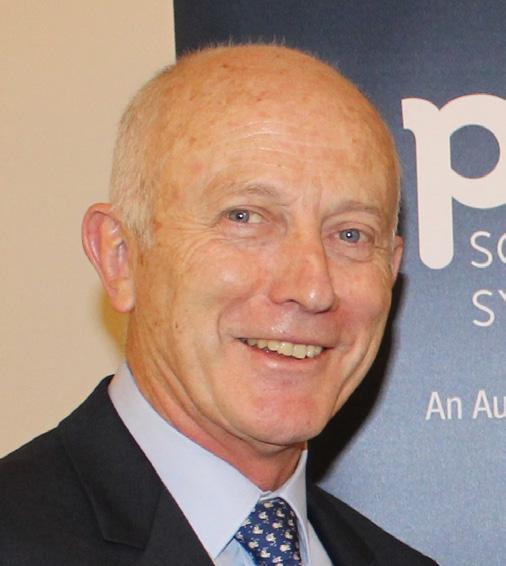
4 minute read
New Online Program to Tackle an Invisible Symptom of Multiple Sclerosis
The Australian National University (ANU)
Fatigue is one of the most common and debilitating symptoms people with multiple sclerosis (MS) experience, affecting up to 95% of people with the condition. A new online program from Germany, now tested in Australia, could lessen the impact fatigue is having on people with MS in Australia and improve their quality of life.
Advertisement
In Australia, there are over 33,000 people with MS, a chronic autoimmune neurological condition that causes a person’s immune system to attack the fatty material of the nerves. The symptoms of MS vary, with no two people experiencing it in the same way. However, one symptom that affects almost all people with MS is fatigue.
‘Fatigue affects every aspect of a person’s life, from working to parenting and relationships,’ Dr Jo Lane, a clinical psychologist and research fellow at The Australian National University (ANU), says.
W hile various treatments are available for MS, there is still a need for interventions that specifically target MS-related fatigue.
A new self-guided, interactive online program called elevida aims to reduce fatigue in MS. Based on the principles of cognitive behavioural therapy, elevida helps people with MS better understand fatigue, manage sleep and exercise, cope with stress, and recognise and change negative thought patterns. It provides people with MS with tools and resources like educational videos and practical exercises.
The program was originally developed by German company GAIA AG in cooperation with a research team led by Prof Gold, Charité Universitätsmedizin Berlin, and a team at Universitätsklinikum Hamburg-Eppendorf. In a collaboration with the German research team, ANU researchers have now examined the acceptability and feasibility of the English version of elevida with people with MS in Australia.
‘Interventions to address multi-faceted problems such as fatigue in MS are often under-researched due to their complexity. This collaboration is a fantastic opportunity,’ says ANU Professor Nicolas Cherbuin, a member of the research team.

The study, funded by MS Australia, has gathered the feedback of those completing the program, and will now inform further research.
‘The participants told us what they liked and didn’t like about the program as well as their experiences of fatigue,’ Dr Lane says.
‘Overall, our results indicate that the English version of the program was found to be acceptable, feasible, and suitable for people with MS-related fatigue.’
Dr Lane is part of Our Health in Our Hands (OHIOH), a strategic initiative of the ANU. The multi-disciplinary initiative aims to develop innovative personalised precision medicine for people with chronic conditions, initially focusing on diabetes and MS, by co-creating across disciplines, professions, and areas of expertise. OHIOH involves clinicians and researchers from various fields, including chemistry, computing, engineering, medicine, physics, and psychology.
People with lived health experience play an integral role in OHIOH. They inform OHIOH’s research every step of the way, from choosing research topics to designing studies and testing new devices and programs.
‘One participant in our study knew about the German version of elevida. He was very excited to be part of the study to examine the English version,’ Dr Lane notes.
‘Our team aims to further advance the research in MS-related fatigue and to develop a personalised approach to measuring and characterising this symptom,’ Associate Professor Anne Bruestle, the Chair of OHIOH, says.
Unfortunately, MS-related fatigue is invisible to others. As a result, people with MS frequently say others don’t understand or take this symptom seriously.
‘I experience fatigue constantly. Everyone knows what it’s like to be tired, but MS-related fatigue is different,’ David, a person with MS who completed the elevida study, states.

M S-related fatigue is also very subjective, with researchers and clinicians requiring people with MS to describe their experiences of the phenomenon.
‘At OHIOH, we combine self-reported and measurable psychological and physiological factors. By analysing them with machine learning approaches we aim to make this invisible symptom measurable,’ says Associate Professor Bruestle.
‘Once measurable, digital programs and apps will allow people with MS to measure and track the psychological and physiological symptoms they experience, including fatigue, at the convenience of their home,’ Professor Hanna Suominen, Executive Leader (Computing and Engineering) of OHIOH, explains.
‘Machine learning approaches help us explore combinations of the reported experiences and measured factors, as well as their possible correlations and causalities,’ she notes.
Associate Professor Bruestle concludes, ‘Our research will help define a clear individualised picture of MS-related fatigue and fundamentally advance our understanding of it.
‘Not only will this empower people with MS and directly impact their quality of life, but also provide guidance for clinicians.’










